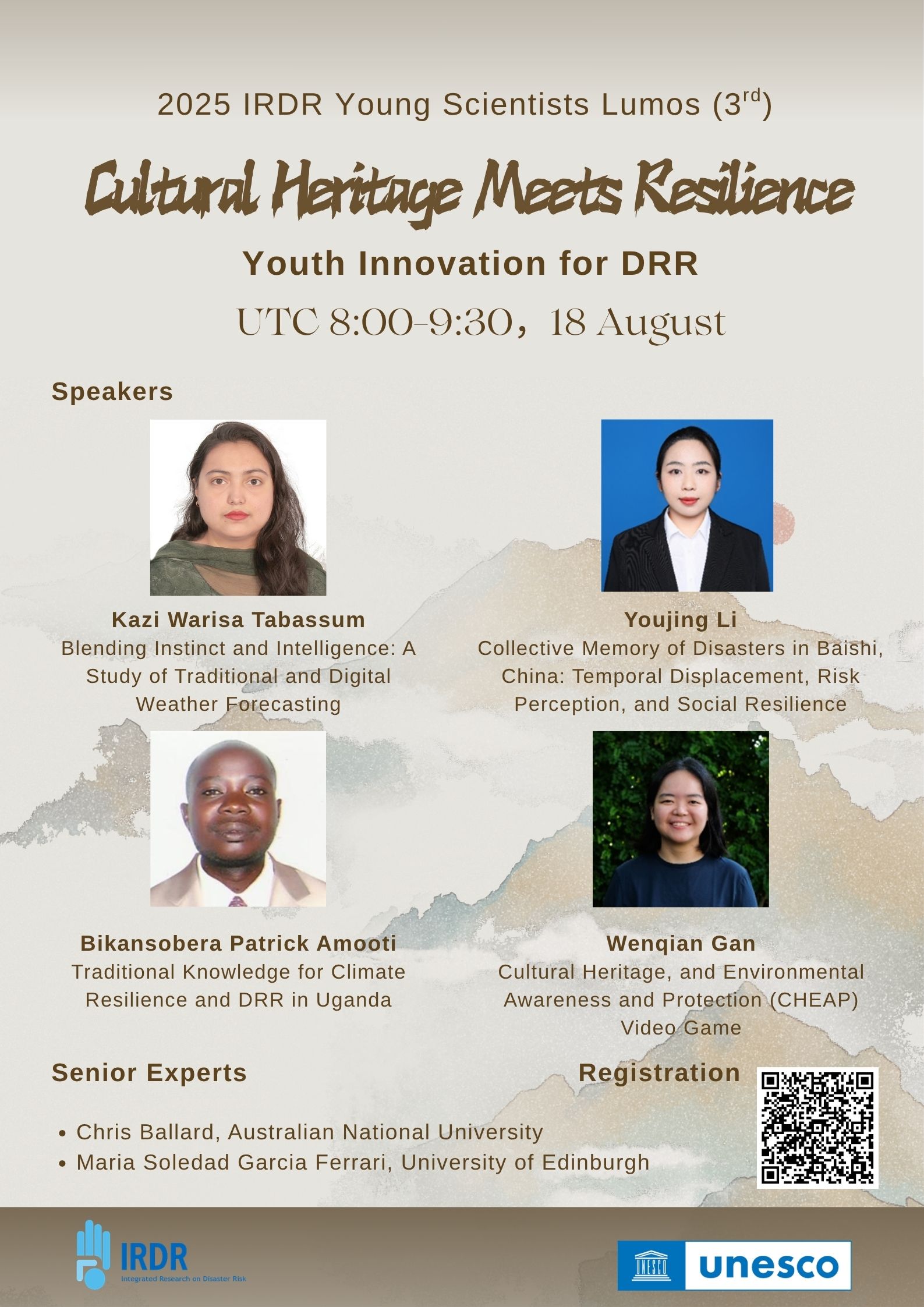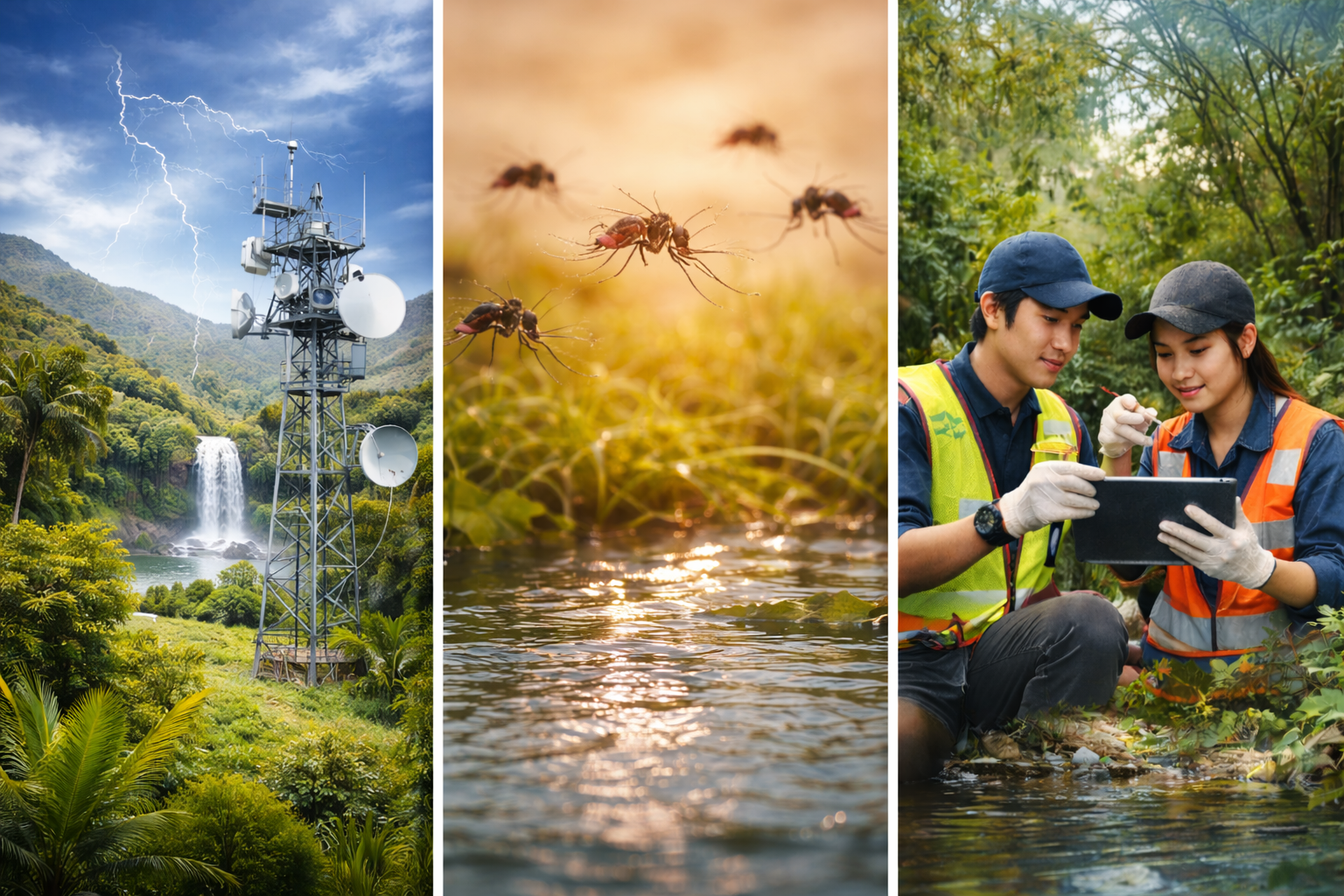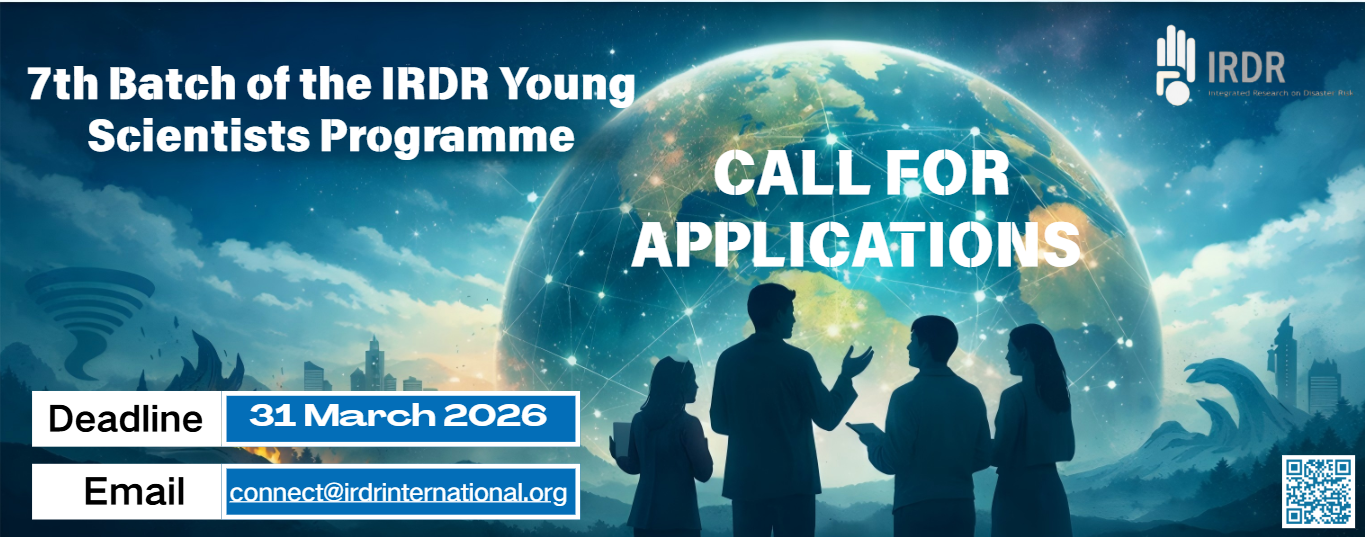Registration:
UTC8:00-9:30, 18 August, Online
https://zoom.us/webinar/register/WN_-UndAZZNT3CuftdfuqWhoQ
Upon registration, participants will receive a confirmation email with details to join the meeting.
Download for details and profiles: [Agenda]
Speakers
- Kazi Warisa Tabassum, Blending Instinct and Intelligence: A Study of Traditional and Digital Weather Forecasting
- Youjing Li, Collective Memory of Disasters in Baishi, China: Temporal Displacement, Risk Perception, and Social Resilience
- Bikansobera Patrick Amooti, Safeguarding the Cultural Heritage of the Banyabindi People: Traditional Knowledge for Climate Resilience and Disaster Risk Reduction in Uganda
- Wenqian Gan, Engineering WITH People: Cultural Heritage, and Environmental Awareness and Protection (CHEAP) Video Game
Senior Experts
- Chris Ballard, Australian National University
- Maria Soledad Garcia Ferrari, University of Edinburgh
Rationale of this Lumos
In order to enhance the connection and promote the innovations and actions of young scientists, IRDR IPO designs a mechanism of “IRDR Young Scientists Lumos”, which will be webinars, sessions, meetings or discussions mainly organised and participated by young scientists and young professionals in global disaster risk reduction (DRR) community.
UNESCO and IRDR jointly initiated discussions on the cultural heritages, climate change adaptation and disaster risk reduction. Under this cooperation, a report in this regard was published by UNESCO and IRDR. To further raise this discussion among young researchers, professionals and practitioners, UNESCO and IRDR co-organise this lumos. The lumos will reflect the research and innovations from young generations with the topics including but not limited (1) vulnerability assessment of cultural heritages (tangible and intangible), (2) integrating traditional knowledge and advanced technologies for climate change adaption and disaster risk reduction, and (3) the role of culture in climate action through education, grassroots initiatives, and policy engagement.
It is expected that through the discussion, the innovation contributions from young professionals will be visualized and acknowledged by the global DRR community.






